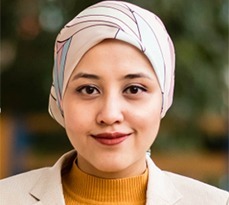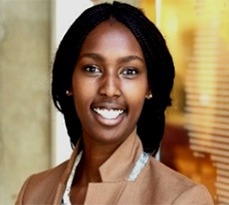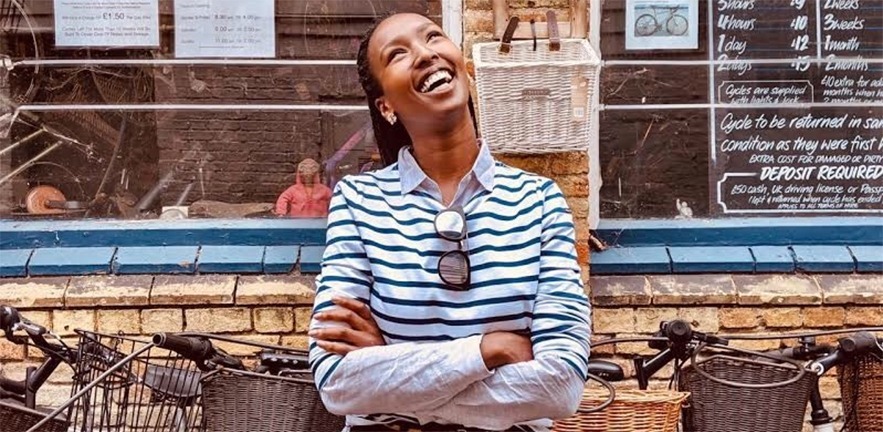Thabo Lennieye (MBA 2018) and Atiqah Zaki (MBA 2018) both have an international background and heritage; Thabo is half Kenyan, half Zimbabwean and has lived and worked in Canada and the USA. Born and educated in Malaysia, Atiqah trained as a lawyer and worked as a contract specialist before starting an MBA at Cambridge.
Female entrepreneurship in Cambridge
We asked them both where do you see yourself after the one-year Cambridge MBA programme?

Atiqah: “When I first started my MBA, I saw myself working back home in Malaysia for a consulting firm but that’s not how things look right now”.
“During my MBA year, I was introduced to the world of entrepreneurship and that experience made me want to take the leap and give entrepreneurship a try. I am now in Cambridge, building a venture and working with the School to make my new dream a reality”.
Atiqah left Malaysia to gain more international work experience, she continues: “I had done some advisory work and I felt consulting and business were areas of interest to me. When I discovered that I could get the business exposure that I wanted by building my own startup, I seized the opportunity”.
Thabo came with a different timeline to her startup venture. “When I first came to Cambridge, I already wanted to start a company. I had previously started my own company in the US whilst in employment, and I was pretty focused on that direction. I did explore other career paths when I arrived in Cambridge, but very quickly came back to my original plan.”
Accelerate Cambridge at Cambridge Judge Business School
Now both women are currently on the Accelerate Cambridge programme run by the Entrepreneurship Centre at Cambridge Judge Business School.
Both Atiqah and Thabo are on a visa extension scheme, allowing them to extend their studies in the UK for a period of up to two years.
Atiqah explains “The CJBS Entrepreneurship Centre gave me all the help that I needed. I felt that the pathway to creating a business was very clear in the UK, and I felt that I would be able to grow this business faster, with the support of the business school and the wider Cambridge network, and with London so close.”
“I felt that if I was ever to give entrepreneurship a try this was the best time and place for that.”

For Thabo, studying in the UK was always designed to be a stepping-stone. “Part of the reason for moving to the UK from the US, was to be closer to Africa and to eventually move there.”
Along with the strong Cambridge entrepreneurship eco-system, “there is a large African business community nearby in London. My plan was always to leave after finishing my MBA, but this started to make me think that the UK could be a bridge to start something new”.
MBA skills being put to the test
Reflecting on the MBA year and the values and skills they now bring to their new venture, Thabo says “The biggest value of the year is that you get this platform for experimentation, whether you have decided the direction you want to pursue or not”.
“The confidence you develop during the year, with negotiation, team and leadership skills training; as well as juggling the multiple priorities and opportunities across a one-year MBA programme, teach you that regardless of what is thrown at you, it will be okay. When you are then sitting at a negotiation table, you feel a lot better equipped.”
Atiqah explains that before the MBA experience, she was naturally risk averse. She has a legal background and had no previous knowledge of the traditional ‘business person’ either in her direct family or her network in Malaysia. “Before the Cambridge MBA I would never have started a business.”
Atiqah draws her strength and her support system from her own MBA alumni network. She co-founded Skinlync with Yigit Akar(MBA 2018)from Cambridge MBA class of 2018/19. Skinlync is developing a digital health solution for self-management of skin conditions. Atiqah explains “the reason we chose the UK is because the healthcare sector is so big here; it is innovative, developing and the sector is very welcoming of new ventures. We are focused on the UK and Europe at present – half my team are Turkish so access to Turkey is also important for our location”.
“The Cambridge name has allowed us to contact and have access to a wide range of networks, contacts and companies that we previously never thought possible.”
For Thabo, working in the real estate sector and specifically real estate investment with a startup called Landable.io, being close to London has proved invaluable. “The UK, and specifically London, seems to be the financial hub for a lot of companies focused on or already working in Africa.”
“There is a lot more connection here than I previously expected. There is also a huge diaspora network in the UK, as well as in Cambridge itself; a community looking for services and things that connect them back home.”
Women in business – female founders
Both Atiqah and Thabo were dynamic students in the Cambridge MBA Class of 2018/19; they were active in campaigns to support women across the cohort through the Wo+Men’s special interest group (SIG), as well as during the International Women’s day events, and the annual Wo+men’s Leadership Centre conference hosted and organised by the Business School. Atiqah had also founded Leading Ladies of Malaysia, an initiative promoting the achievements of Malaysian women, one leading lady at a time.
Atiqah says “There are a lot of initiatives supporting female entrepreneurs in Cambridge and the UK, which is very encouraging”. She continues “While there may not be many female founders in the health sector, I don’t see this as a problem – my team is very balanced, and my male co-founders are very supportive”.
Thabo says “The real estate sector is still a bit of a boys club. If I walk into a room and I’m the only woman or the only woman of colour, it’s okay. It has it’s downsides of course, but on the positive side, I stand out”.
“When I graduated from architecture the statistics were the same, they were not favourable to either my gender or race. I have learned not to let statistics determine or limit what I believe is possible for me.”


